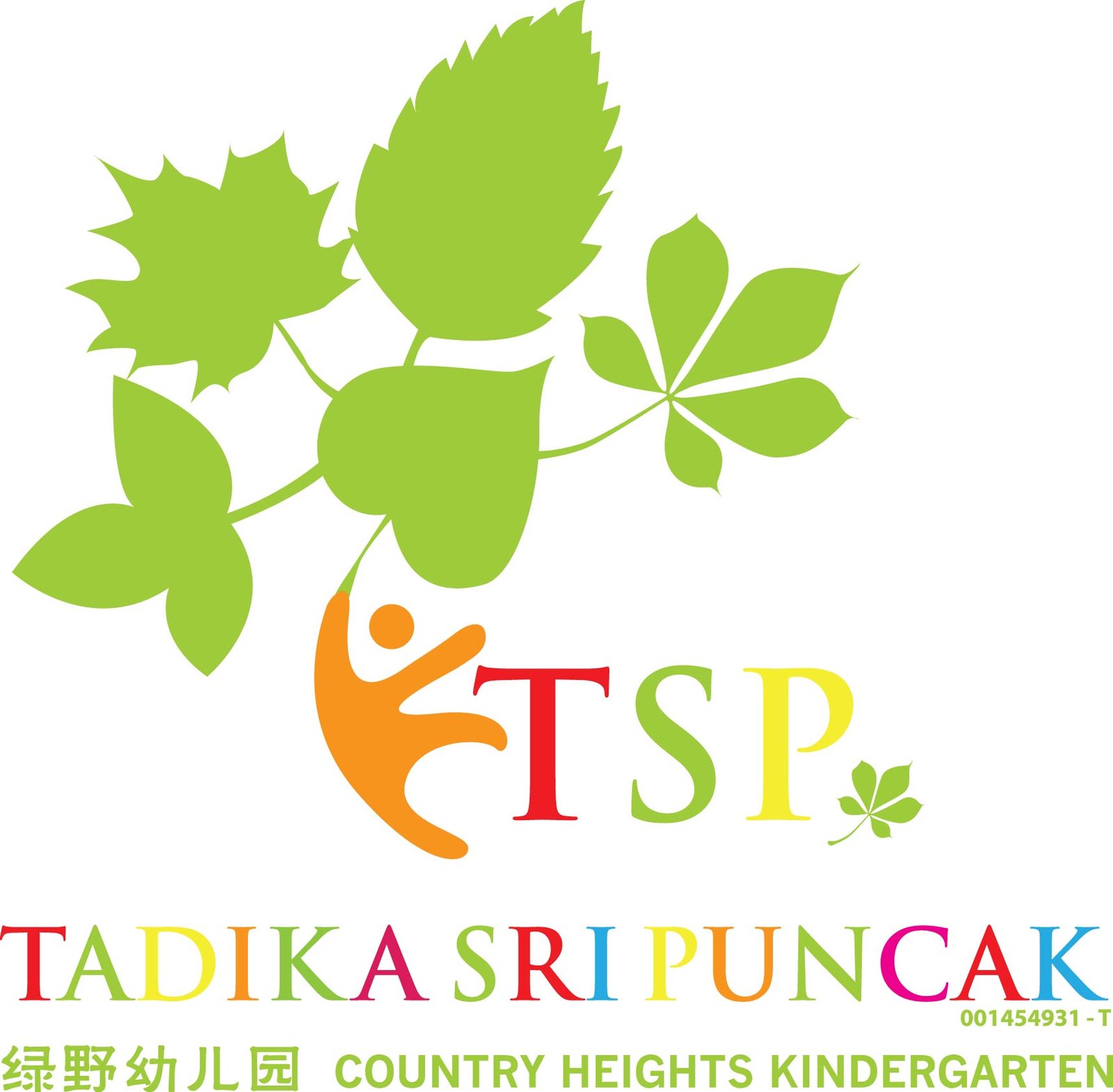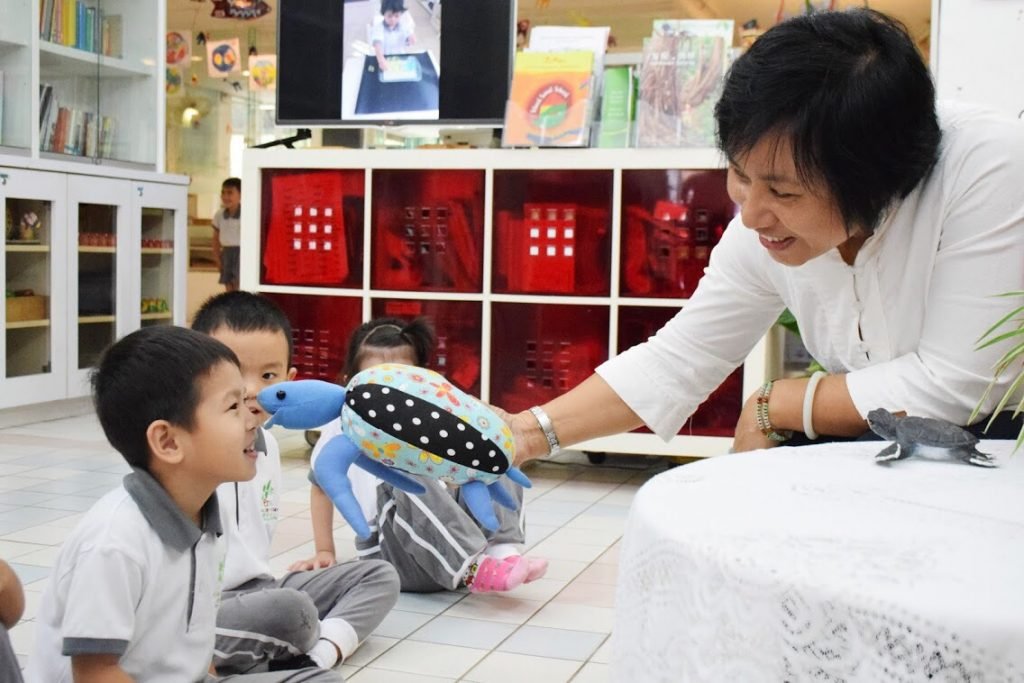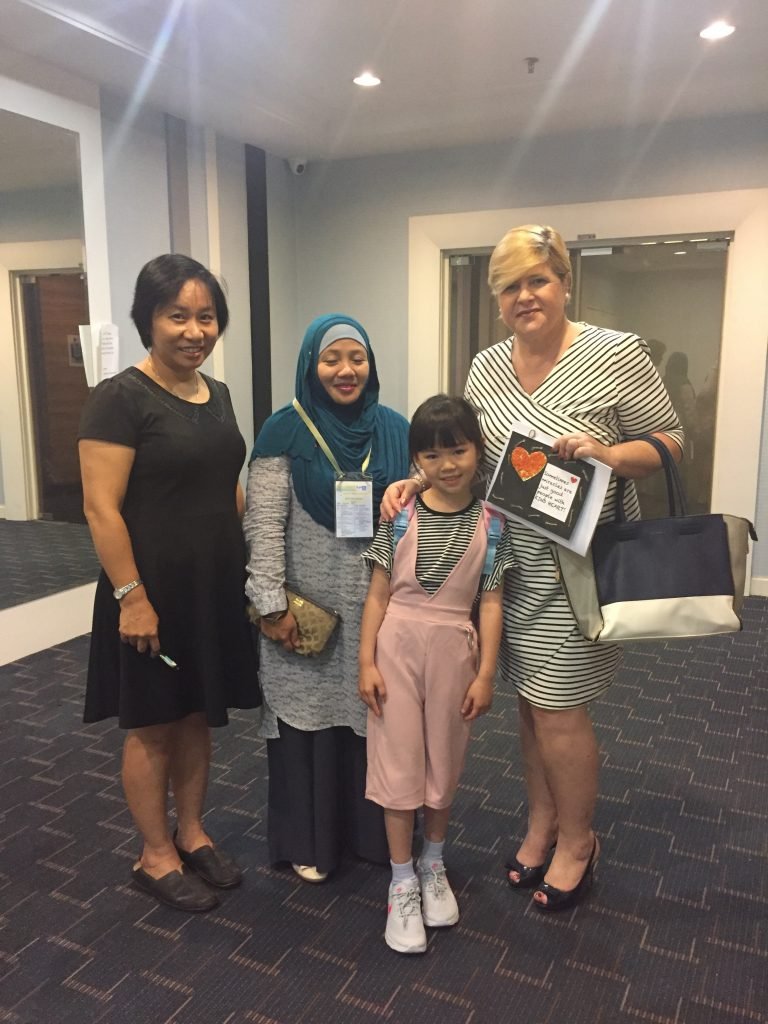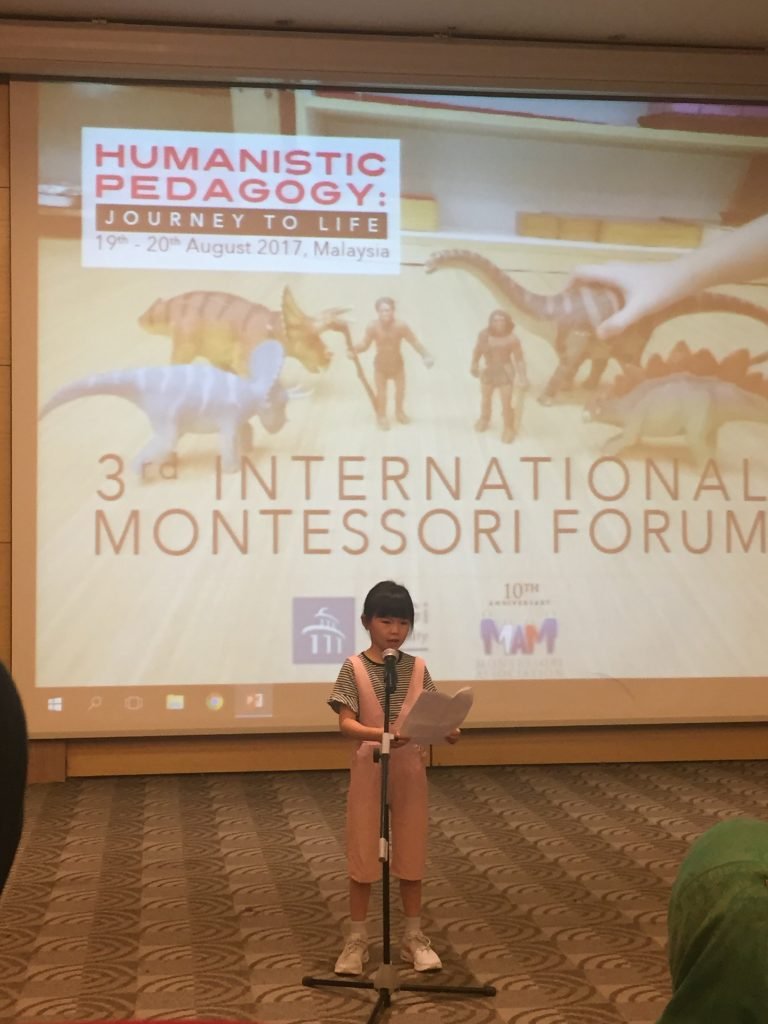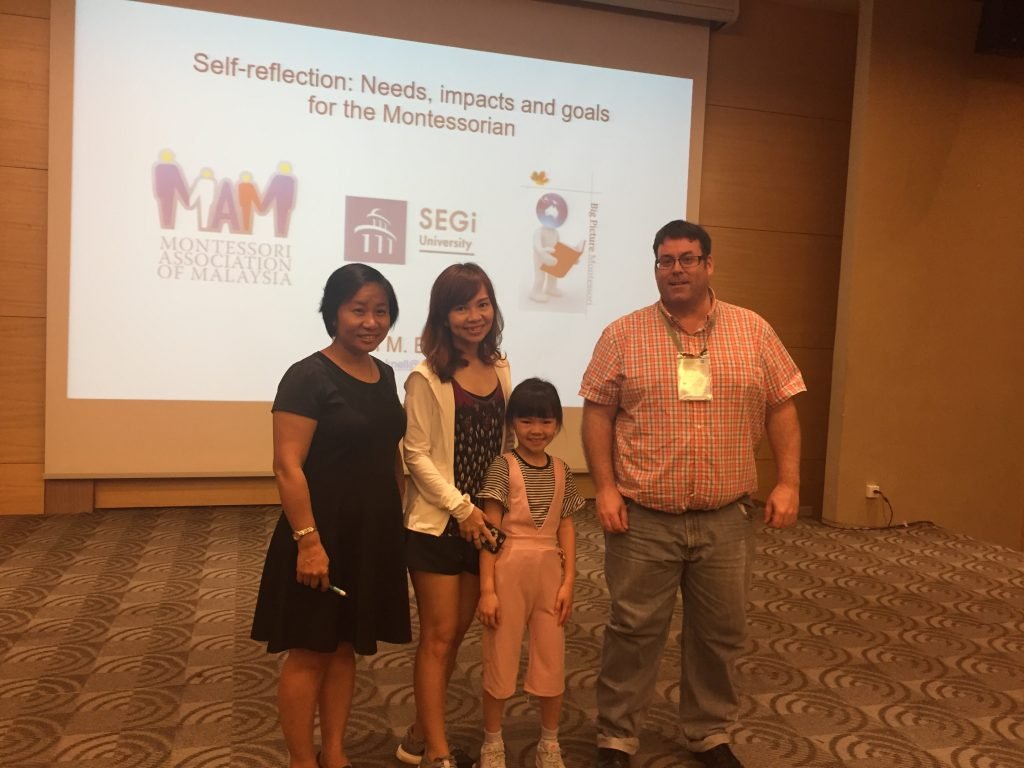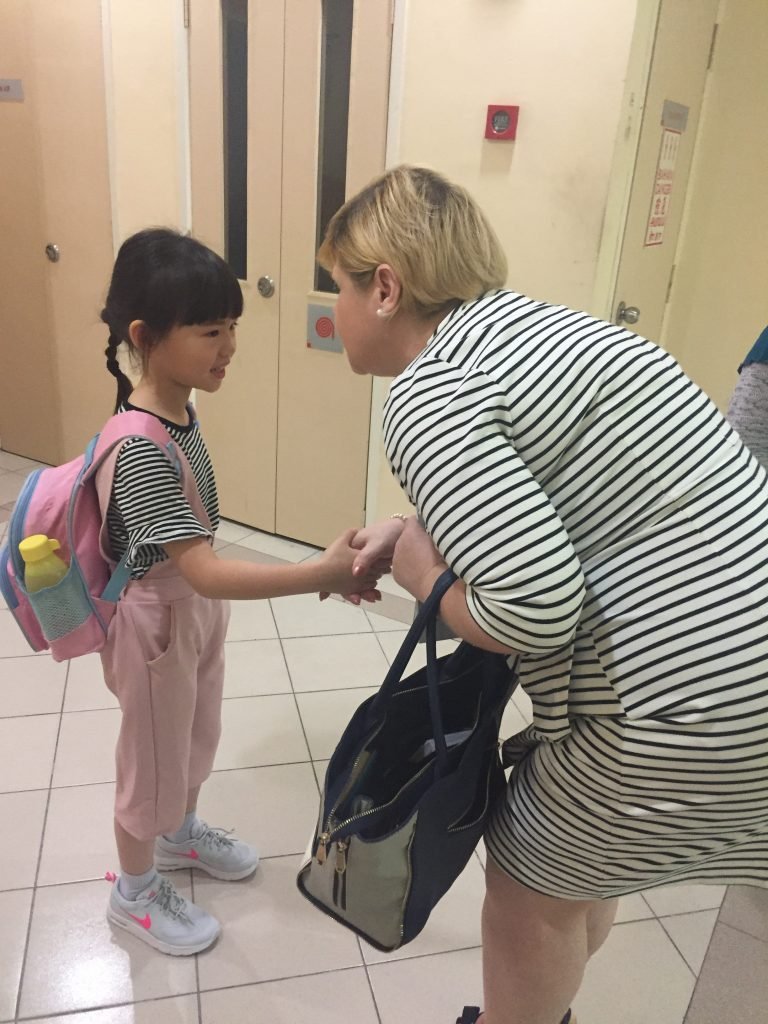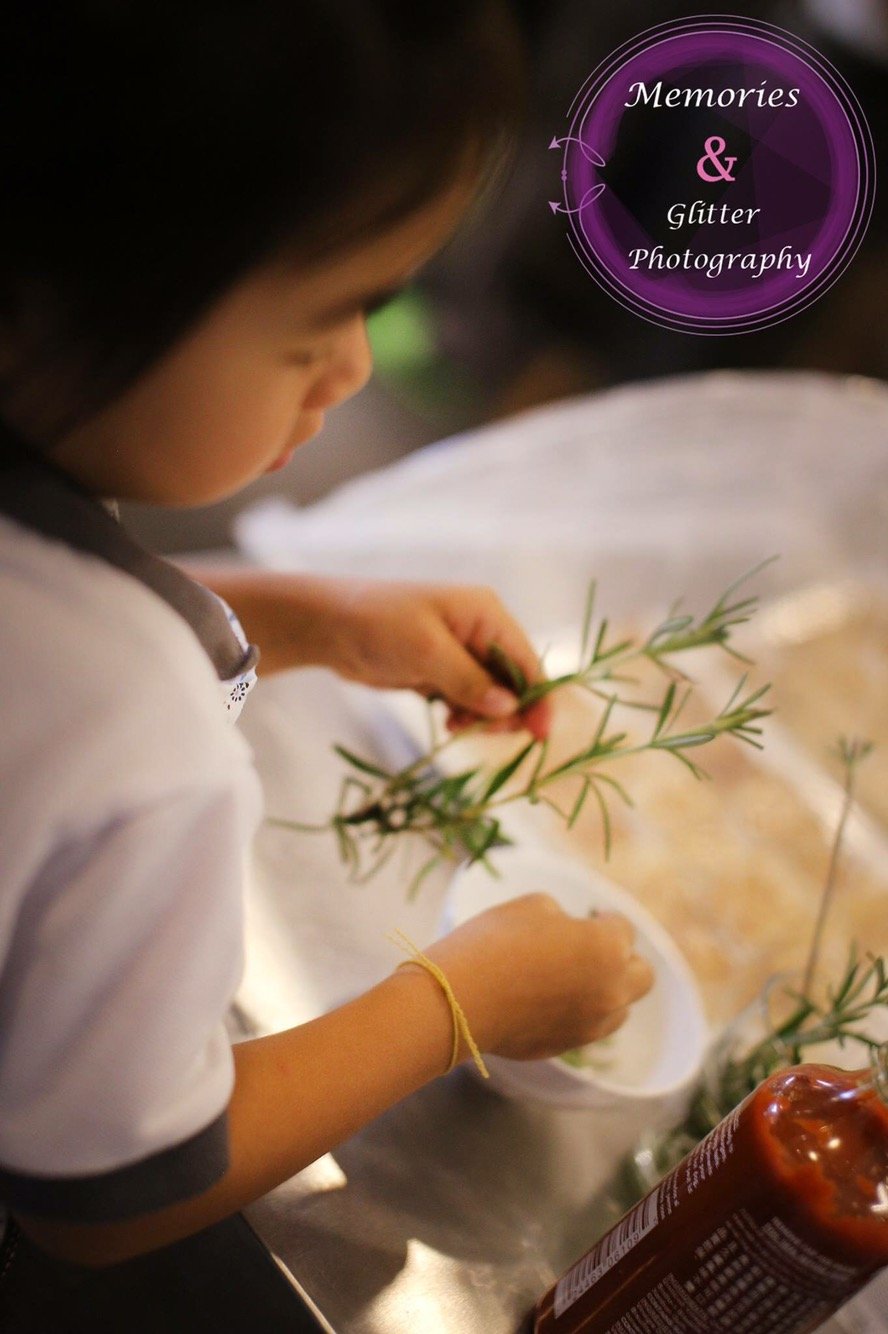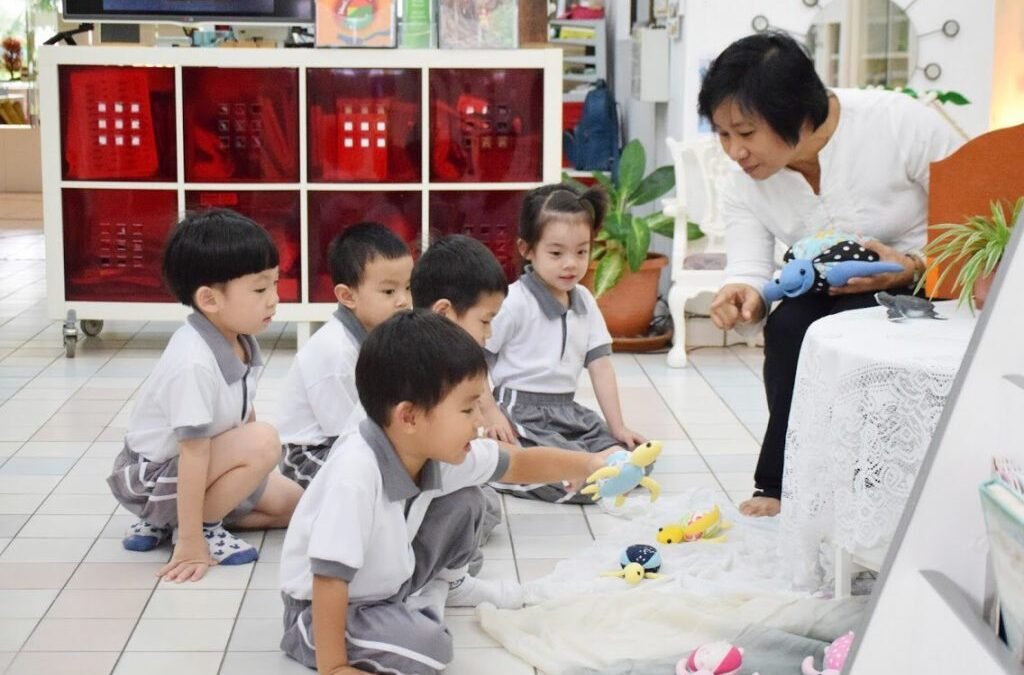


2017 3rd Montessori Forum, SEGI University, Malaysia
In the recent 3rd Montessori Forum held in SEGI University, Malaysia, Lee Shi Hua was invited to share her Montessori experience in Tadika Sri Puncak and Green Meadows Montessori.
We also had the opportunity to know Matt Bronsil (USA), Jan Gaffney (New Zealand), Darin M. Bicknell (Canada), Maria Gayla Escanillas (Philippines), Henderina Corry and her 14 years old daughter Angie from Indonesia as well as the President of Montessori Association of Malaysia, Aisha Z Abdullah.
Green Meadows Montessori collaborated with two other Montessori schools to showcase three Malaysian traditional dances to the audience.

When God closes a door, somewhere He opens a window………艺术、童趣…. 另一囗窗!
I recently attended an talk on “Understanding Art Therapy” given by Dr. Liu Wei-Ping, she is a subject matter expert in Special Education. In this sharing session, we were taught the basics of interpreting children’s intelligence level through drawing, the shared content is only applicable to children below the age of 10.
Her methodology is quite straight forward – Children will be asked to draw a male figure, either a boy or a man, it has to be a non-fictional character. Upon completion, the drawing will be analysed, specific body parts of the character to be marked and scored with reference to a chart. The final IQ score is a product of total score identified from the drawing matched with the subject’s age and readings on an intelligence chart.
The outcome of this exercise is an indicator of a child’s intelligence area of improvement. My colleagues and I did this similar exercise with children from other classes, selected drawings were used in the discussion with Dr. Liu.
This sharing session with Dr. Liu was very beneficial. My colleagues and I gained a better understanding on how to apply different techniques to help children with learning difficulties to overcome their learning barriers, and to help them to build better self confidence.
Other than discussing some speech delay case studies, we also had a conversation on potty training.
An interesting part of the discussion we had with Dr. Liu that I’d like to share here is that, through my teaching experience, I’ve met many parents with “potty-not-trained” toddler (I’m referring to toddlers that should have been potty-trained), have a mindset of “let my child find his own pace” but not understanding why they should apply early intervention to potty-train their children.
Yes, it is true that the child will be potty-trained one day. Parents, are you aware of the psychological impact of delayed skill attainment? Did you know when a child has greater self-awarenesss, he more likely to develop psychological barriers to learn a new knowledge/skill when most of his peers can do something easily but he struggles to?
I once met a boy with speech delay, he was always angry as he was unable to convey his messages. His parents accepted the fact that this boy needed early intervention so sent him for speech therapy sessions. He took two years to improve his condition and learn the techniques of effective communication. He is now able to communicate effectively, so he is now a happy and confident boy.
When God closes a door, somewhere He opens a window. Be courageous to accept and face the reality, there are so many success stories encouraging us to apply early intervention to support children with learning difficulties. Together we will make a difference to the life of the child!
Written by Jess Liew
Translate by Hui Munn

最近出席了一个有关艺术治疗的讲座。与会者都可以体验以绘画评估智商的活动。效度只用于10岁以下的孩子。
大家在一张A4白纸上画出一位小男孩或是男人,必须是写实的而不是漫画或卡通的,再从每一部分,由头发,眼睛一直到脚趾,各部位按照图表指示打分。分数加起来,得了一个raw score. 再从另一个图表找出智商分。这还得和年龄分除,才得到最后的 IQ score.
这可以知道哪一些小孩某方面需要特别的协助。导师们后来也在别的班和小孩做了同样的活动。 再选了一些小孩的画和讲师一起分析。
这回从讲师在课室的观察和分享,真的受益良多。 尤其如何协助学习迟缓的孩子,讨论哪一些良策更有效的帮助。 此外我们也谈到孩子语言障碍。 孩子的如厕练习……等。
很多时候,家长认为”迟一点再看看”, 或 “他还小。”……等态度, 无法了解小孩可以越早改善,越有効的重要。 是的,也许迟一些,等孩子再长大一点,可能被改善,但孩子会因为年龄和心智的成长,而渐渐的对自我的意识更高, 而无法承受和同龄的偏差。 这可能造成心理障碍而影响学习。
我曾看到一位语言障碍的小孩的进步,当父母接受事实之后,勇敢地踏出第一步而改变。 当初这孩子因为无法与同侪沟通而变得脾气暴躁。 大约两年后, 改善了这个问题, 小孩因接受语言治疔而个性改得柔和许多, 也更有自信。 这只是其中一个例子。 在改进的过程中,需要一些时间和耐性。所以找到根源,越早治疗越好!
老天爷若为人关上一扇门,必为他再开数口窗,珍惜、尊重每一个生命,陪孩子渡过不同的生命历程!
Visit TSP Blog to find out more

孩子的学习进程一定要考试来印证吗?不考试也一样可以把东西学得很好吗?

Why is Practical Life such an important element in Montessori education?
What do children learn from cooking? Why is Practical Life such an important element in Montessori education?
Why do rice turns soft when it’s cooked? Why muffins rise? Come and think about it – cooking is a life science lesson, and you don’t actually have to teach them, the activity does it for you.
Bringing food from kitchen to table gives children an opportunity to feel grown-up, an indirect way to build and develop their logical thinking, sense of order, patience, coordination, motor skills.
To bake muffins, children first need to understand the recipe. To do that, they read, spell and connect words like “egg” on the recipe to looking for a real “egg”. The concepts of measurement and volume is made simple when they hold physical measuring tools like water jug, cup, spoon and scales. And show them how different amount of substances (flour, sugar, butter, water) will look different, but still weigh the same.
Achieving small successes is a great way to boost a child’s self esteem. Cooking is a fun and educational activity to improve children’s confidence as the results are quick – it helps them to learn how to achieve a goal with many sequential small tasks.
上学为什么要学做饭?不是只要学会读、写、算,还会应付考试就够了吗?
为什么孩子要学做餐点?
为什么日常生活练习在蒙特梭利教室那么重要?
因为这是建构专注力、协调性、小肌肉技巧练习!序秩感及独立思考的重要基礎。
在厨房工作让孩子学到很多技巧譬如怎么阅读食谱、测量食材、计划等步骤……
这种全面性的学习过程能让孩子完整的学到一件事情的中间没有跳过任何步骤。
Visit TSP Blog to find out more
